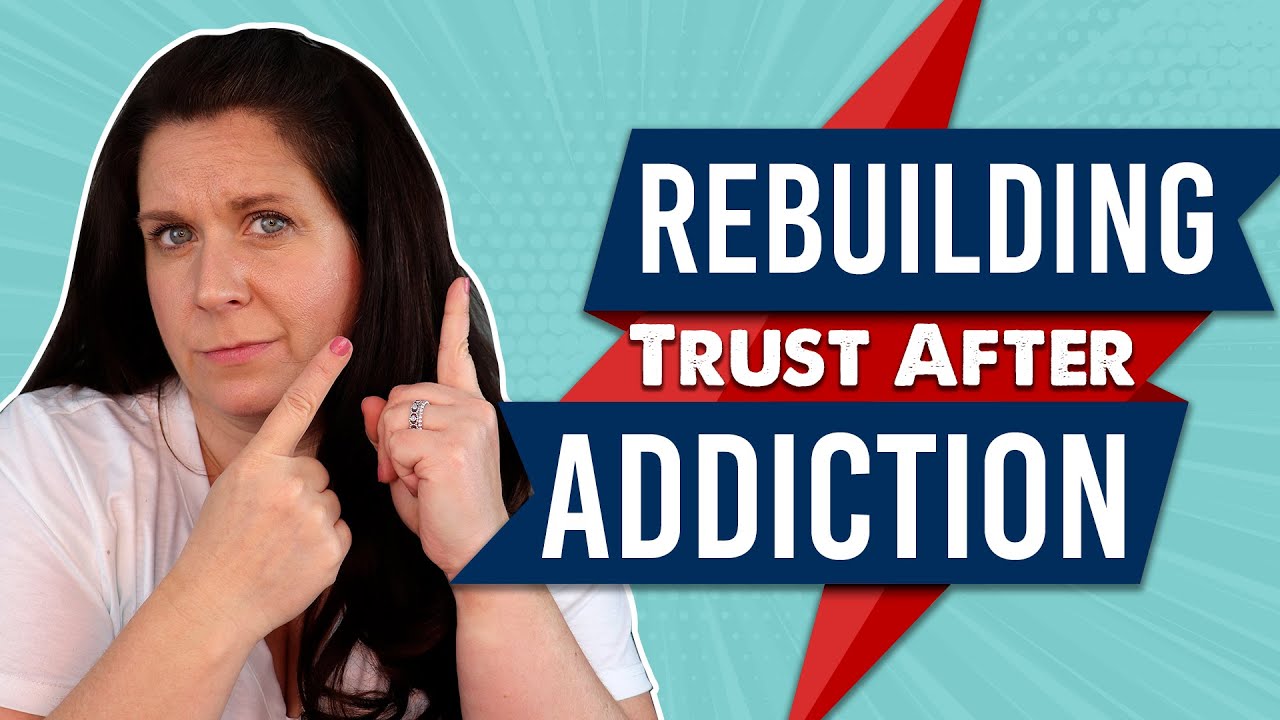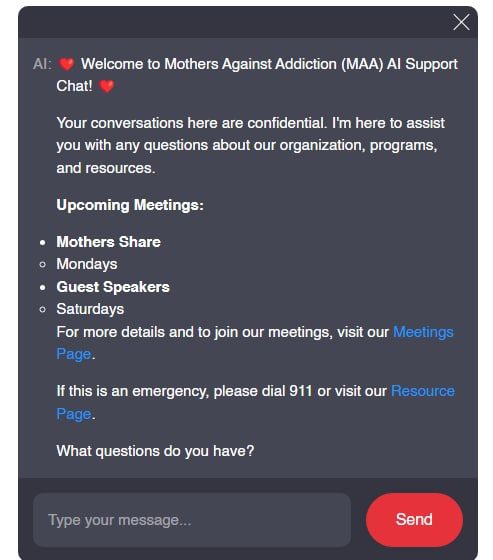The Necessity of Rebuilding After Addiction
Rebuilding after addiction is about reshaping lives, mending relationships, and laying the foundation for a future filled with promise. It’s a path where families, communities, and individuals invest their heart and soul. This transformative journey is critical, not just for the person recovering, but for everyone connected to them. It’s a shared trek towards hope, healing, and a brighter tomorrow.
Navigating the Emotional Aftermath
Understanding Emotional Turmoil
Tackling addiction ignites a whirlwind of emotions—grief, guilt, relief—they all crash together in a tempest. Stability seems like a distant dream. Mindfulness and therapy can be lifesavers. Take Drew Barrymore, for instance. After her very public struggle with addiction, she found solace in mindfulness and therapy, which gifted her inner peace and direction. Her story, like many others, showcases that finding emotional grounding is both possible and essential.
Personal Stories of Resilience
Stories of resilience can light the way. Russell Brand is a prime example. He didn’t just overcome his addiction; he turned his journey into advocacy, showing the world the raw, honest process of recovery. His openness helps us understand that rebuilding requires support, perseverance, and an unyielding spirit. These stories remind us that, no matter how dark the tunnel, there is always the possibility of light at the end.
| Aspect | Details |
| Personal Healing | Counseling and Therapy: Individual and group therapy sessions to address emotional and psychological challenges. |
| Healthy Lifestyle: Incorporating exercise, balanced diet, and relaxation techniques like yoga and meditation. | |
| Hobbies and Interests: Engaging in activities that spark joy and promote self-discovery. | |
| Self-Help Resources: Books, online forums, and support groups focused on addiction recovery. | |
| Family Support | Family Therapy: Sessions geared towards rebuilding trust and communication within the family unit. |
| Educational Workshops: Programs that help family members understand addiction and recovery. | |
| Support Groups for Families: Meetings where families share experiences and support each other. | |
| Professional Help | Rehabilitation Centers: Facilities offering structured recovery programs. |
| Outpatient Services: Ongoing support without residential stay; includes counseling and medical services. | |
| Community and Social Networks | Support Groups: Organizations like AA, NA, SMART Recovery for ongoing peer support. |
| Volunteering: Opportunities to give back, building a sense of purpose and community connection. | |
| Financial Stability | Employment Assistance: Programs that help find and maintain suitable employment. |
| Budgeting and Financial Counseling: Services that provide strategies for financial stability and independence. | |
| Educational Opportunities | Academic Programs: GED, college courses, and continuing education to enhance skills and qualifications. |
| Job Training Programs: Skills development for better employment opportunities. | |
| Medication-Assisted Treatment | Benefits: Helps manage withdrawal symptoms and reduce cravings, supporting long-term recovery. |
| Cost: Varies based on medication and treatment plan, often subsidized by insurance or public health programs. | |
| Relapse Prevention | Action Plans: Creating a plan to recognize triggers and develop coping strategies. |
| Follow-Up Care: Regularly scheduled check-ins with healthcare providers to maintain progress. |
Community and Relationship Building
Rebuilding Trust in Relationships
Trust is like a delicate fabric; once torn, it takes effort to mend. Addiction often frays or rips this fabric in families and friendships. But it’s not irreparable. Take inspiration from Elton John and his partner, David Furnish. David’s unwavering support was vital in Elton’s recovery. Their journey underscores the potential of rebuilding trust and nurturing relationships, even after significant turmoil.
Community Support Systems
Communities offer a safety net. Non-profits like “Shatterproof” and global giants such as “Alcoholics Anonymous” play an indispensable role. These organizations aren’t just about education and advocacy; they foster a sense of belonging. They provide the communal support structures necessary for anyone looking to rebuild after addiction.
Financial Independence Post Addiction
Financial Literacy Programs
Financial stability can be a major stressor in recovery. Organizations like “Financial Peace University” offer programs that teach budgeting, saving, and more. These programs ease financial anxieties, a crucial part of the rebuilding process. Understanding What Is alimony or how to define probate becomes vital in securing a stable future.
Success Stories
Business moguls like Sir Richard Branson, who has been candid about his struggles with addiction, pave the way for financial and professional redemption. He turned his journey into a testament that it’s possible to combine recovery with entrepreneurial success, thus securing financial independence and professional fulfillment.
Healthy Lifestyle Adoption
Physical Health Regimens
Physical health is a cornerstone in rebuilding after addiction. “The Phoenix,” a non-profit organization, offers free exercise programs geared towards individuals in recovery. These programs highlight the tangible benefits of incorporating fitness into the recovery journey, showcasing how a healthy body supports a healthy mind.
Nutritional Counseling
Nutrition is another critical component. “Eat to Beat Addiction” provides specialized dietary plans to aid recovery and combat cravings. Real-life testimonials reveal the profound impact of proper nutrition on the recovery process, proving that what we eat can significantly influence our journey toward health.
Education and Skill Development
Learning New Skills
Educational programs like those offered by “SMART Recovery” and the “Hazelden Betty Ford Foundation” are essential. They provide life skills training that’s crucial for sustaining sobriety. These programs equip individuals with the tools they need to thrive, making the journey of rebuilding after addiction a bit smoother.
Continued Education
Higher education can be a powerful tool in the rebuilding process. Universities and online platforms like “Coursera” offer courses that help recovering addicts develop new skills and talents. Real-world success stories highlight individuals who have turned their lives around through education, underscoring the importance of continuous learning in recovery.
Conclusion: A New Dawn
Rebuilding after addiction is undoubtedly challenging, but it’s profoundly rewarding. Through emotional rebuilding, trust restoration, financial stability, physical health, and continuous education, recovery transforms into a journey of hope and fulfillment.
Let’s draw inspiration from those who’ve walked this path. Their stories remind us that the journey after addiction isn’t just about recovery; it’s about discovering inner light and strength. It’s about finding hope in the promise of a new dawn. By embracing this comprehensive approach, we can help foster a world where rebuilding after addiction is seen as a journey of rediscovery and resilience.
For additional resources and support, visit Mothers Against Addiction,where we prioritize Maternal mental health, offer tips for Self-care For Mothers, and provide guidance for Co-parenting With an addict. Together, we can rebuild and find hope amidst the journey of addiction recovery.
Rebuilding after Addiction: A Journey to Hope
Engaging Fun Trivia and Interesting Facts
Rebuilding after addiction is a journey filled with both challenges and triumphs. While the road may be tough, there’s always room for some light-hearted moments and intriguing facts that can inspire and engage. Did you know that Kenita Monique fearn has a compelling story of overcoming difficulties to find her path? Her journey can offer hope and motivation to those in similar struggles, proving that rebirth is possible even after the darkest times.
A common thread in rebuilding after addiction is the support system around an individual. Speaking of communities, the Family Time cast really knows how to depict the importance of family bonds and unity. Just like the show’s characters, real-life families play a crucial role in the recovery process. They provide the patience, love, and understanding needed to navigate through the highs and lows.
Additionally, finding therapeutic activities can be pivotal. Just imagine the calming and rejuvenating experience one can have while visiting the Sea Life Orlando Aquarium. The serenity offered by watching marine life float by can be incredibly healing, and it’s places like these that remind us there’s beauty to be found in the simplest moments. Such excursions can be a part of the rebuilding journey, serving as peaceful retreats for those rebuilding their lives.
Rebuilding after addiction is more than just personal recovery; it’s about creating lasting memories and moments of joy. Incorporating trivia and engaging destinations into the recovery process can uplift spirits and encourage a positive mindset. So go ahead, take a leaf out of these inspiring stories and captivating places. Embrace the journey with hope, knowing that each step forward, however small, is a victory in itself.

What are the 7 tips of recovery if you are an addict?
Sure thing, here’s the information you need, broken down neatly into standalone paragraphs:
How to rebuild life after drug addiction?
Finding support is key. Engage in therapy, connect with others in recovery, stay physically active, set clear goals, practice mindfulness, focus on nutrition, and avoid triggers like people or places associated with past use.
What are the 3 steps of overcoming addiction?
Rebuilding life after addiction takes time and patience. Start with small steps like finding stable housing and work. Connect with supportive friends and family, develop new hobbies, and consider counseling to address any lingering emotional issues.
How to build back trust after addiction?
Overcoming addiction typically involves three steps: admitting there’s a problem, seeking help through therapy or support groups, and maintaining a long-term plan that includes avoiding triggers and engaging in healthy behaviors.
What are the 5 C’s of addiction?
To rebuild trust, it’s important to be honest and consistent. Apologize to those you’ve hurt and show through your actions that you’ve changed. Be patient; trust takes time and steady effort to rebuild.
What are the 4 C’s of addiction?
The five C’s of addiction include: Chronic disease, Compulsive behavior, Craving, Continued use despite harm, and Control loss. These factors interact and make addiction a complex condition to treat.
Why is recovery so difficult?
The four C’s of addiction are Craving, Compulsion, Consequence, and Control. These underline how deeply addiction affects a person’s ability to make healthy choices.
How to love yourself after addiction?
Recovery is tough because addiction changes the brain’s chemistry and function. It’s not just about stopping drug use; it’s about reshaping habits, dealing with underlying emotional pain, and finding new, healthy ways to cope.
What is the Sinclair method?
Loving yourself after addiction involves forgiving past mistakes and treating yourself with kindness. Focus on self-care, surround yourself with positives, seek therapy if needed, and celebrate small victories along the way.
What are the 5 rules of recovery?
The Sinclair method involves taking a medication called naltrexone before drinking. It works by blocking the euphoric effects of alcohol, reducing the urge to drink over time.
How long does it take an addict to recover?
The five rules of recovery are: prioritize your treatment, set and stick to daily routines, stay away from triggers, build strong, supportive relationships, and practice self-care consistently to maintain mental and emotional health.
Does one drink break sobriety?
Recovery time varies for everyone. It can take weeks to months, depending on the addiction’s severity, the individual’s support system, and their commitment to the recovery plan.
How do addicts forgive themselves?
Yes, one drink breaks sobriety. Staying sober means completely avoiding alcohol or drugs because even a single drink can lead to a full relapse.
How do you break a bad addictive habit?
Forgiving oneself involves acknowledging the harm done, making amends where possible, and accepting that everyone makes mistakes. It’s a gradual process that may require professional help and a lot of self-compassion.
What is habit reversal for addiction?
Breaking a bad addictive habit starts with identifying the triggers. Replace the bad habit with a healthier one, seek support from friends or professionals, and stay committed even when it’s hard.
What are the 7 R’s of recovery?
Habit reversal involves becoming aware of the habit and its triggers, learning a competing response, and making lifestyle changes that support the new behavior.
What are the five rules of addiction recovery?
The 7 R’s of recovery are: Realize there’s a problem, Reach out for help, Revisit personal values, Replace old habits, Reconnect with positive influences, Reflect on progress, and Reinforce positive changes.
What do addicts need to recover?
Addicts need a strong support system, including therapy and peer groups, a safe and stable environment, a structured routine, and access to healthy coping mechanisms to recover.
What is the 7th step of recovery?
The 7th step of recovery involves seeking spiritual growth and reflection, recognizing one’s higher power or deeper meaning in life, which helps sustain long-term sobriety.




























